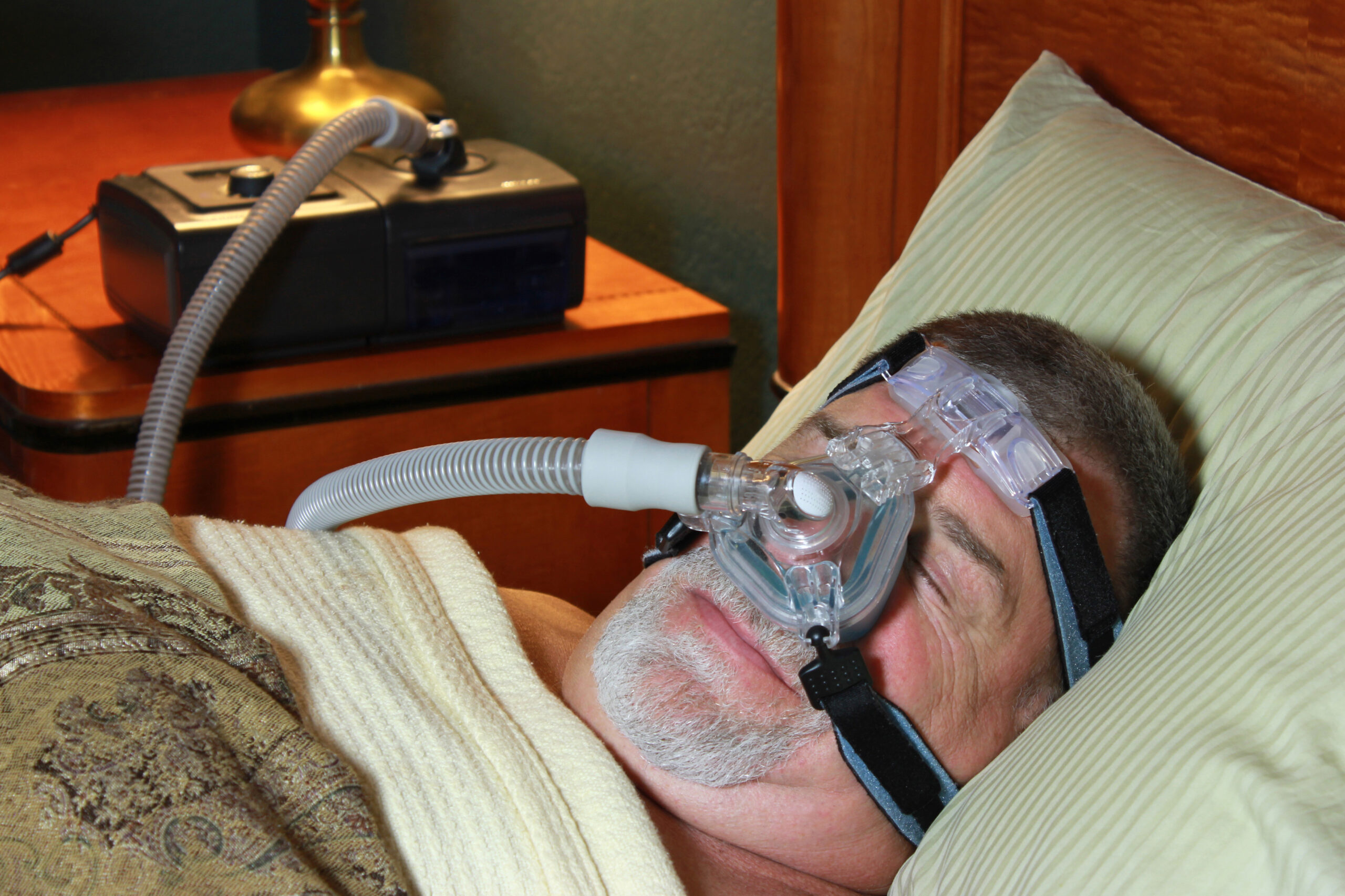Sleep interrupted by apnea can not only result in a poor night’s rest and possibly cause a fright for a bed-mate, new research has found untreated sleep apnea can significantly increase the risk for sudden cardiac death.
A 2013 long-term study published in the Journal of the American College of Cardiology found that obstructive sleep apnea, when breathing stops periodically during sleep, doubles the risk for sudden death. Sleep apnea is very common, especially among adults over the age of 60. According to the National Heart, Lung and Blood Institute, an estimated 12 million American adults have obstructive sleep apnea and many of them are undiagnosed.
When a person stops breathing during sleep, the oxygen saturation levels fall and if levels drop to 78 per cent, the risk of sudden death occurs. In particular, if a person stops breathing 20 or more times during each hour of sleep, saturation levels may fall, increasing risk of cardiac death. Sleep apnea is also associated with high blood pressure, atrial fibrillation, heart attacks and stroke.
Age, excess weight, being male, a family history, alcohol or sedative use, smoking and chronic nasal congestion all contribute to the risk for sleep apnea. But there are treatments for sleep apnea when stopping smoking, losing weight or treating allergies aren’t successful. Your doctor may suggest a continuous positive airway pressure (CPAP) mask to be worn at night to keep airways open and prevent apnea and snoring. In some cases surgery to open the throat or reposition the jaw may be considered, but usually only if other treatments are ineffective.
Symptoms of Sleep Apnea
- Loud snoring
- Stopping breathing during sleep noticed by someone else
- Waking up suddenly short of breath
- Waking with a dry mouth or sore throat
- Morning headache
- Daytime sleepiness
- Difficulty staying asleep
- Attention problems
- Irritability
Source: Mayo Clinic
If you or your partner notice any of these symptoms, talk with your doctor who may refer you to a sleep specialist for an overnight evaluation. To read more about obstructive sleep apnea, follow this link to the Mayo Clinic Patient Care and Health Information.






Add Your Voice
0 Comments
Join the Discussion